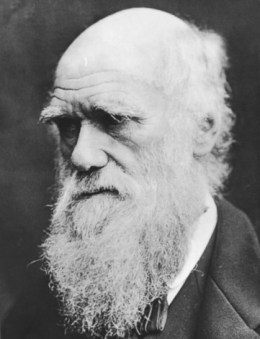
Charles Darwin kept his theory of evolution to himself for 21 years. Now the single largest publication of Darwin’s personal letters are available online, thanks to efforts by the Cambridge University Library, which holds the largest Darwin archive, including annotated books from his working library and notes from his voyage on the HMS Beagle.
The project will begin with what scholars consider the most important correspondences – some 1,200 letters – with his confidant, the botanist Joseph Hooker, according to The Independent. It seems Hooker not only supplied Darwin with exotic plant species–but also provided moral support, as both men suffered multiple family tragedies.
(MORE: Charles Darwin Garnered 4,000 Votes in a Georgia County)
While Darwin was a scientist once slandered by his fellow Victorians for proposing that animals and man share a common ancestor, the letters “give a different picture of both Darwin and the scientific enterprise, in showing it as intensely collaborative, and that it is not divorced from private life,” Paul White, editor and research associate of the project, said in an interview with BBC’s Newshour.
One of the most touching letters that humanizes Darwin is about losing his daughter-in-law, who had collected plant specimens for him during her own honeymoon. As Darwin wrote to Hooker in a letter that has already been published:
“I am sure you will pity us, when you hear that Amy… was seized with convulsion which lasted for several hours, she then sunk into a stupor and I saw her expire at 7 o’clock this morning…I cannot think what will become of Frank. She helped & encouraged him in his scientific work & whether he will ever have heart to go on again or what he will do I cannot conceive.”
Other correspondences that are available now for viewing include the most famous one, in which Darwin confesses his initial feelings about his then developing theory: “I am almost convinced (quite contrary to opinion I started with) that species are not (it is like confessing a murder) immutable,” he writes. In fact, after Darwin’s infant son died of scarlet fever, he almost gave up his claim on the natural selection theory to another scientist, Alfred Russell Wallace, who was concurrently, though independently, working on it as well: “It is miserable in me,” Darwin wrote “to care at all about priority.”
To read more of Darwin’s letters, see the archive’s list of Top 10 Letters here.






